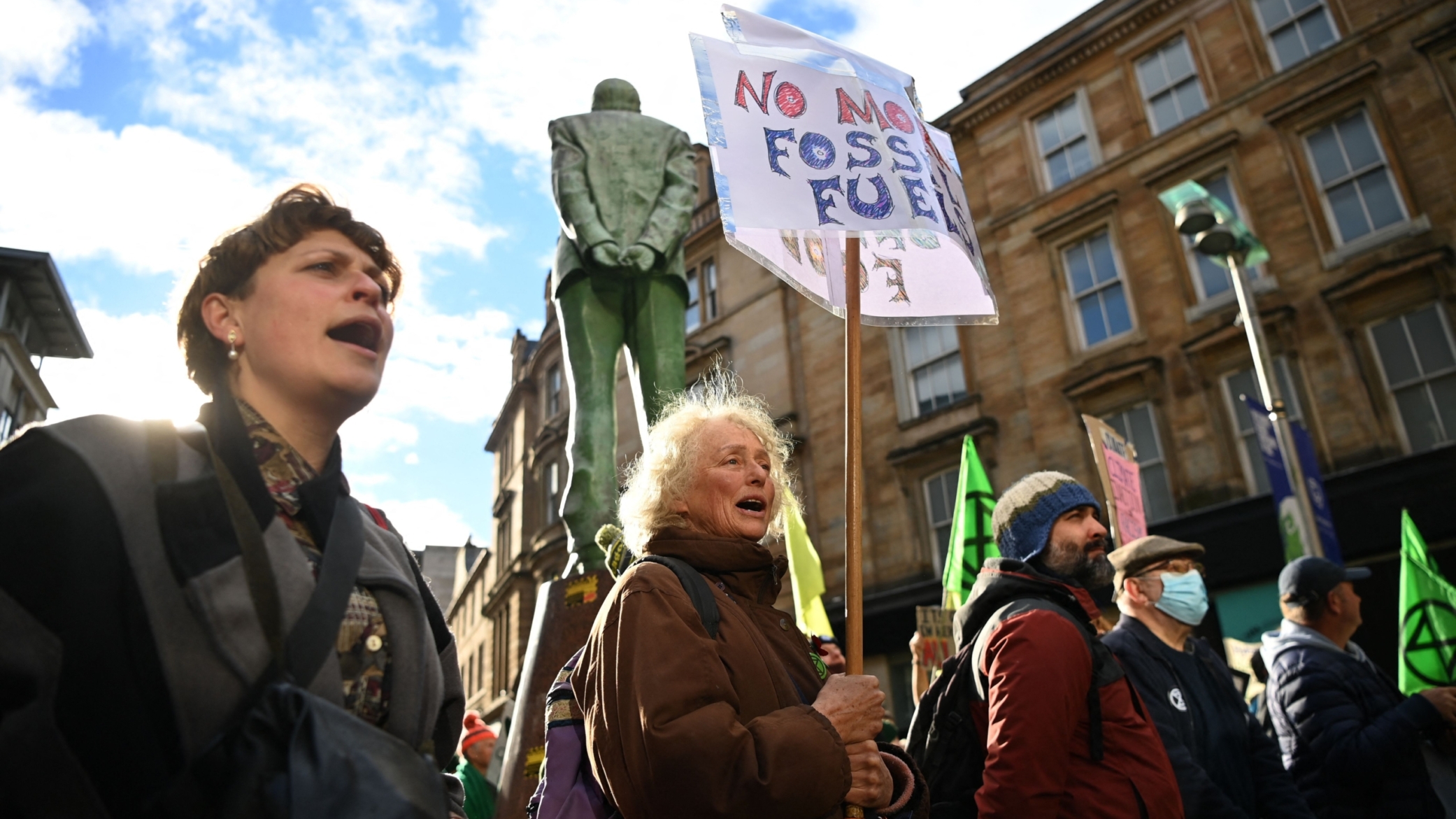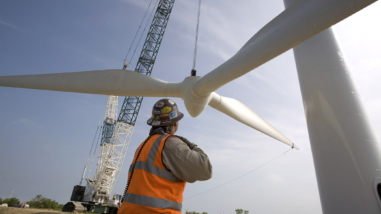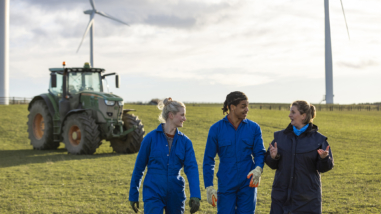COP26: An exciting tipping point in accelerating global climate actions

It was motivating to see widespread participation from across the globe and to find that governments, corporations, financial institutions, and civil societies could come together to find lasting and ambitious solutions to emission reductions. At COP26, climate solutions were being frequently paired with broader social and economic development agendas—a needed recognition that to win on climate, the solutions we propose must improve the lives of all people as quickly as possible.
COP26 featured low-carbon commitments and momentum beyond the negotiation table, particularly amongst the world’s largest economies and highest emitters. U.S. President Joseph Biden found ways to connect the U.S. climate agenda and the sustainable development goals at home and abroad—particularly with the support of regulatory changes to bolster a low-carbon transition and with helping to spearhead the Global Methane Pledge alongside the European Union. The EU also adopted ambitious legislation across multiple policy areas to implement its international commitments on climate change, while EU countries set binding emission targets for key sectors of the economy to significantly reduce greenhouse gases in the next decade. India and other G77 countries also echoed the urgency even though their approaches to making a zero-carbon emissions target differ. Following Chinese President Xi Jinping’s recent announcement to end overseas coal investment, China released both a top-level design of carbon neutrality policy framework and a detailed action plan to peak carbon before 2030. Furthermore, the US and China signed a shared climate commitment—a welcome sign of the cross-country partnership that we need to address global warming. If all these commitments are implemented, they will translate into significant progress on the Paris climate agreements.
This year’s COP also highlighted the power of global climate philanthropy to catalyze change. The philanthropic giving to international climate mitigation has grown rapidly to between $6 to $10 billion a year in 2020, and has become increasingly agile, coordinated, and systematic. This year, global philanthropy met and exceeded major funding pledges around climate. The Hewlett Foundation joined 20 philanthropic partners “to commit to over $328M to reducing methane emissions” and also contributed to a $1.7 billion effort to support Indigenous peoples and local communities. The funding is not only larger than previous commitments and more coordinated, but we are also seeing a greater emphasis on using it to support more equitable climate outcomes. While more needs to be done, this growing emphasis on equity is long overdue and an opportunity for funders, including the Hewlett Foundation, to impact significant change on climate.
Though we must always be wary of greenwashing, more corporations—including that are traditionally tied to fossil fuel industries and businesses—used COP as an opportunity to shift toward a low-carbon economy and transform their supply chains. Over 1,000 multinational corporations have already adopted 1.5°C aligned science-based targets, and financial institutions holding $29.3 trillion in assets are calling on others to do the same. New efforts to bring supply chains into the decarbonization equation will also ensure a more comprehensive approach to net-zero efforts. Each of these corporations’ changing policies, practices, and behaviors could be catalysts for their entire sector. Once their implementations prove successful, the cost-benefit analysis for climate-friendly economic approaches will become undeniable.
More than commitments, pledges, and funding, however, I left COP feeling inspired because a movement that was once solely metrics-centered has finally become people-oriented. We all have seen the cost of a single prong strategy that only aims at the number of tons reduced in the designated period of time, and we do not want to be doomed to repeat those errors. Despite the ongoing difficulties to balance the future and now, and the questions on transition and adaptation, I can see that we are getting closer and closer to addressing climate issues in a more comprehensive manner. By broadening the climate conversation, we can now better support communities that are already seeing climate impacts, and those—like youth leaders—that will be affected by the fast-changing climate.
At the Hewlett Foundation, we believe in progress not perfection. I got the impression the world tends to judge the COP as either the beginning or the end of something. In essence, COP is neither. It is there every year to bring us together, to raise awareness, build consensus and coalitions, enhance ambition, and accelerate actions. What I saw most at this year’s COP is increased knowledge, capacity, and innovation of Conference participants, as their take on climate and level of engagement grew exponentially and the discussion focused less on the hypothetical and more on implementation and systemic change. And what I learned the most is that in order to meet our climate target, we have to unleash the power of those who have the most to gain and lose. And for that, I believe the COP has served its purpose. It has laid the foundation for us to get it all done quickly without leaving communities behind. Now it is up to all of us to build on that foundation.



